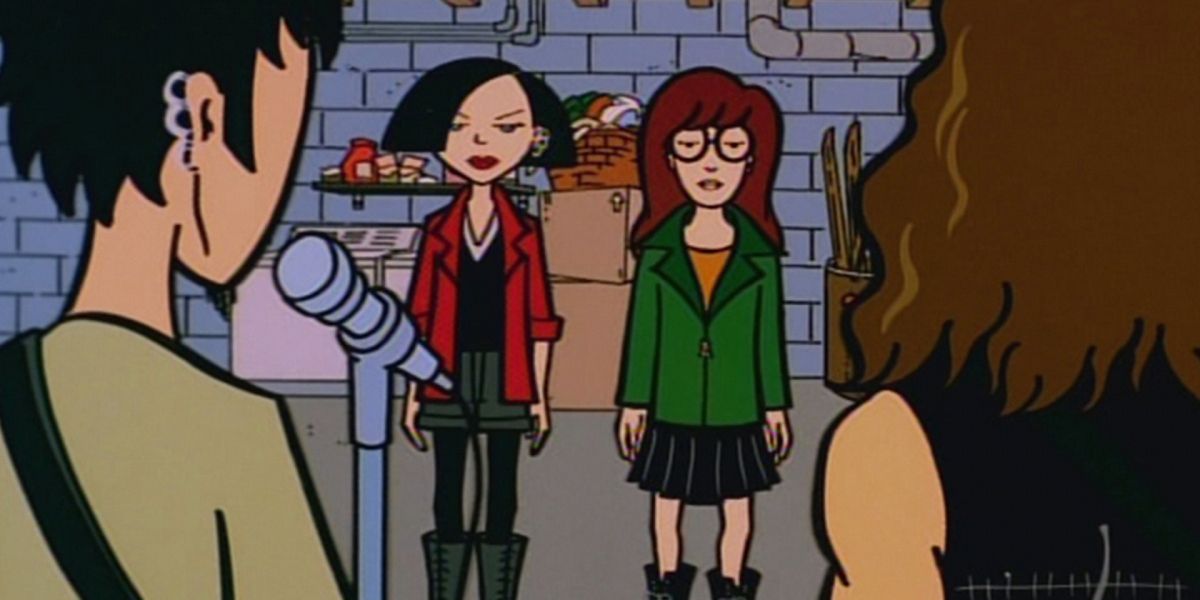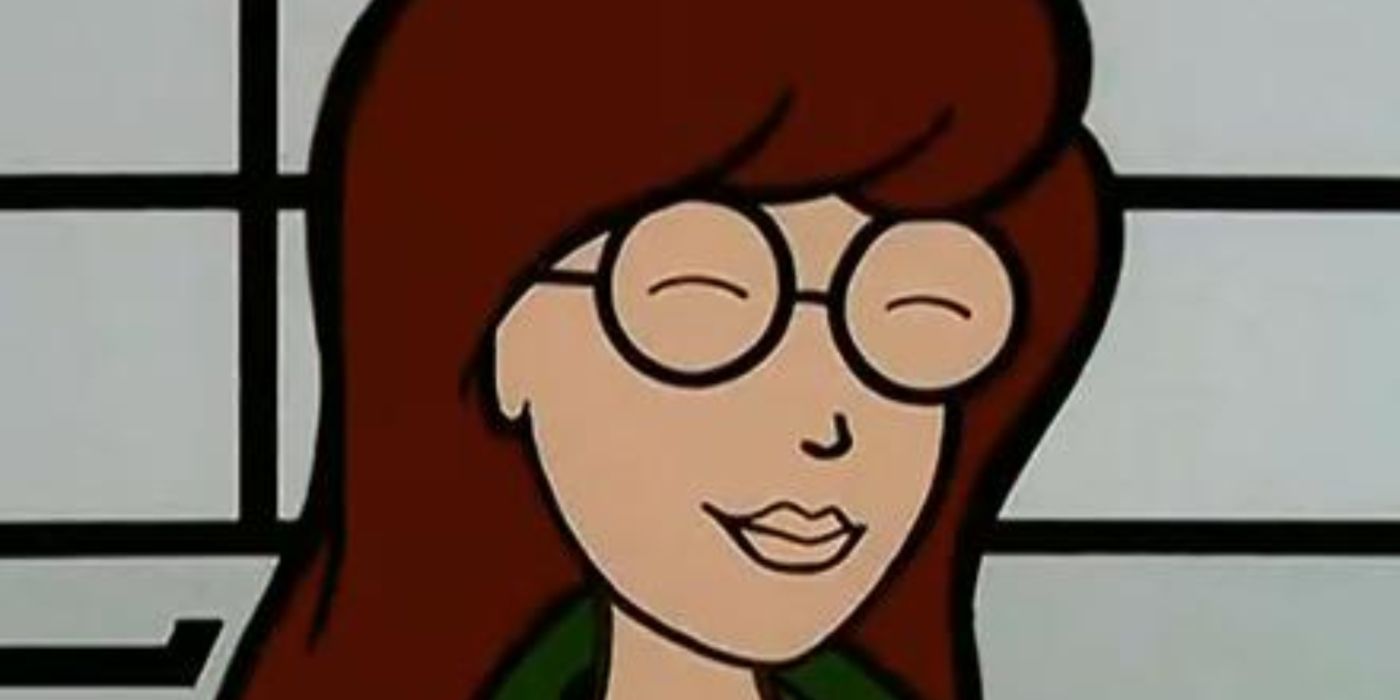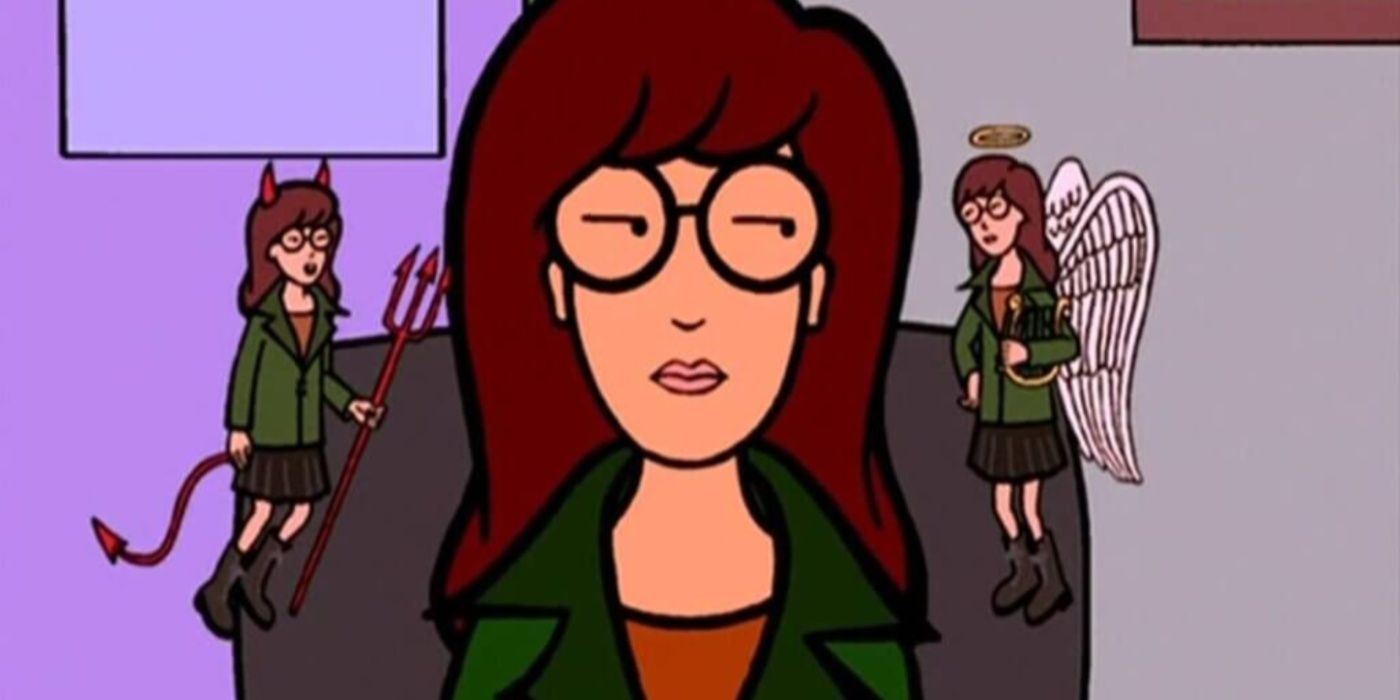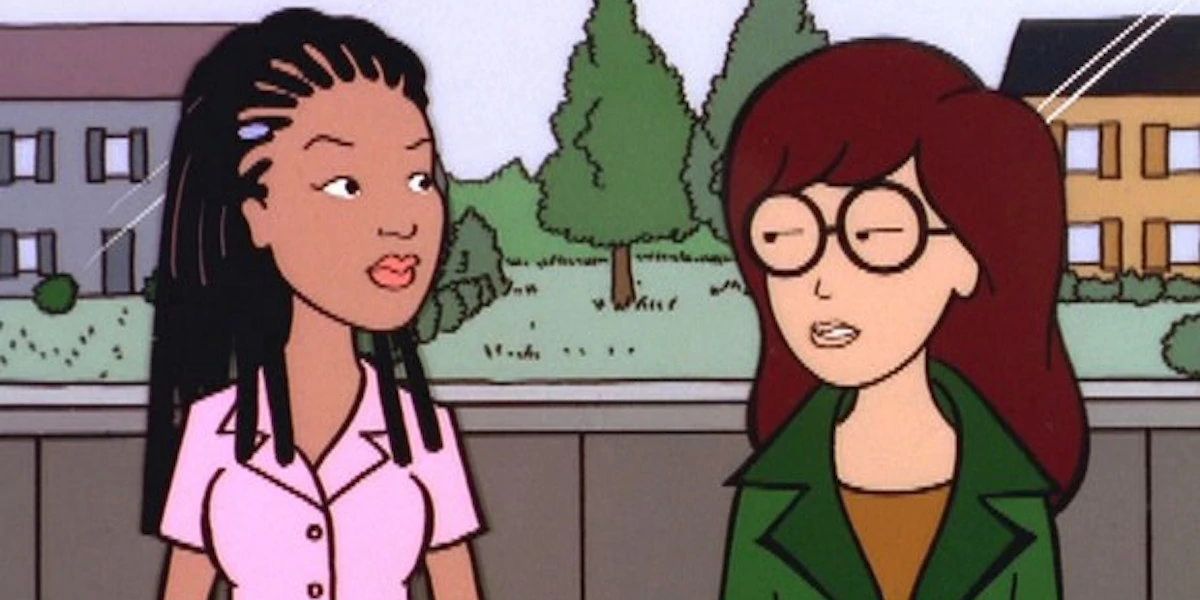
When the TV show “Daria” debuted in 1997, viewers were quickly captivated by its lead character’s sarcastic wit and pessimistic outlook on life. Much like many teenagers, Daria Morgendorffer yearned for a more promising future while finding her present circumstances of high school and romantic entanglements less than desirable. However, as she navigates through life and matures, she discovers that the world isn’t as bleak as she initially perceived it to be.
Initially appearing as an ordinary animated sitcom, Daria actually served as a thoughtful mirror of its era. At first glance, the characters may seem superficial, but they offer a rich tapestry for viewers to understand complexities during times of transformation. Interestingly, Nickelodeon expressed concern that one particular episode from Season 5 might negatively influence the minds of their younger audience.
Fat Like Me Places Daria and Jane on the Backburner
In Season 5, Episode 3 titled “Fat Like Me,” character Sandi gains a bit of weight following a broken leg. Though most people hardly recognize her altered physique, the influential Fashion Club swiftly shuns her. This rejection leads Sandi to leave the club entirely, putting Quinn in charge. However, when Quinn departs too, Stacy and Tiffany find it challenging to maintain the group without their leadership. Meanwhile, the duo of Daria and Jane thrive amidst their rivalry. Jane predicts that the club will disintegrate without its leaders, but Daria anticipates it will merely evolve into a new social structure. To keep the competition alive, Jane encourages Quinn not to assume the President role, while Daria assists Sandi in losing weight to ensure the group’s success.
| Written By | Directed By | Original Air Date | IMDb Score |
|---|---|---|---|
| Peggy Nicoll | Ted Stearn | March 5, 2001 | 7.9/10 |
From my perspective, this particular episode of Daria doesn’t delve deeply into Daria as the main character, but rather explores the intricate world of Lawndale High School itself. For those who might not be familiar, the Fashion Club isn’t a school club about fashion, but rather a close-knit group of friends who discuss trends and rate their peers on attractiveness – essentially serving as a subtle form of bullying. By magnifying this group, the show cleverly comments on how such behavior is sadly common in many schools. This episode, therefore, offers a humorous reflection on how these teenage characters grapple with issues that might resonate with those who were once in their shoes, highlighting the mundane nature of such experiences and making it amusing for audiences to identify with them.
Interestingly, this particular episode shifts Daria and Jane into a supporting storyline instead of the primary focus. This tactic effectively highlights the intricate details of the environment without diverting the viewers’ attention from the central themes. In “Fat Like Me”, we are given a glimpse into the everyday experiences of Daria and Jane: bullying, social exclusion, and the tumultuous emotions of adolescence. This technique is effective because it emphasizes the contrast between Daria and her surroundings. Moreover, the fact that Sandi’s struggles seem to go unnoticed by the girls underscores how prevalent such incidents are at Lawndale, thereby intensifying the emotional resonance of the entire episode. Similar to the audience, Daria can only observe as events unfold around her.
Nickelodeon Wasn’t Impressed With the Discussion of Weight Gain
Originally aired in 2001, the TV show titled “Fat Like Me” garnered a good number of viewers. During its run on MTV, both fans and critics appreciated its thoughtful approach and felt that it had a slightly more intellectual edge compared to its predecessor, “Beavis and Butthead”. In May 2002, the network was eager to air reruns on its teen channel, The N (now known as Teen Nick). At the time, this programming block was still relatively new and aimed to expand its audience by offering a diverse selection of programs. However, “Fat Like Me” was swiftly removed from their broadcasting lineup.
In the original scenario, the network was apprehensive about how its younger viewers might react to a discussion on obesity in their programming. To clarify, due to some controversial sentiments surrounding weight gain in one character (Sandi), Nickelodeon initially decided not to air an episode, making it difficult for viewers to see unless they owned the DVD box set. Now, this once-censored episode is accessible on Paramount+, which has left fans puzzled since the network had previously avoided showing it due to potential backlash from contemporary audiences. However, it appears that viewers of all ages can now watch the episode at their convenience.
It’s important to mention that Daria wasn’t the most provocative series on Nickelodeon, as the network also aired shows like Degrassi: The Next Generation and Out There, which tackled topics such as bullying and peer pressure. However, some viewers feel that Nickelodeon struggled to understand its target audience, unsure whether it wanted to cater to young adults or pre-teens. The network provided a diverse range of programming, appealing to older kids who had outgrown shows like SpongeBob SquarePants and those seeking more mature content like South of Nowhere. Consequently, while Daria may not have been the best fit for Nickelodeon, it wasn’t as scandalous as some of the other content the network was airing.
This Type of Censorship Showcases the Struggles Animated Sitcoms Face



-1.jpg)
Despite numerous cartoons being available in the market, many of them face a common challenge: they are often mistakenly assumed to be intended for children due to their animated style. For instance, shows like “The Simpsons” are filled with adult humor that is far from child-friendly, as evidenced by its crude jokes and toilet humor. However, critics still express disapproval when such shows cross the line with overly offensive content. It’s also important to note that while “Daria” may not be designed for mature adults, it is clearly aimed at high schoolers rather than pre-teens. The controversy arises when networks like Nickelodeon present shows like “Daria,” which are more appropriate for older audiences, to younger viewers.
Daria Morgendorffer was not designed to mirror modern characters like Sabrina Spellman or Joey Potter; instead, she was intended to portray a more authentic depiction of ’90s teenagers. Although she had numerous opportunities at her disposal, she yearned for stability amidst the chaos and sought moments to reflect on her thoughts. Unlike other worlds depicted in media, Daria’s universe was filled with concerns and skepticism. Even when attempting to find joy, minor setbacks would swiftly bring her back to reality. Moreover, given the societal pressures and beauty standards of the early 2000s, weight gain could be a significant challenge for an underestimated high school girl like Daria. The show accurately reflected this by exposing the impact of media’s portrayal of ideal body types on young people during that time.
Similar to Beavis and Butthead, Daria is often misconstrued as well. While viewers are intended to empathize with her everyday challenges, they also find humor in her melodramatic tendencies. Despite having caring friends, a stable home, and a promising future, Morgendorffer frequently feels the world is against her, much like any typical adolescent. Consequently, it’s plausible that those drawn to Daria were likely past the target demographic of The N. As debate on censorship continues, the central question remains whether “Fat Like Me” was appropriate for its intended audience. Many fans suggest that rather than deleting the episode, Nickelodeon should have avoided Daria altogether.
Read More
- Clash Royale Best Boss Bandit Champion decks
- Clash Royale December 2025: Events, Challenges, Tournaments, and Rewards
- Clash Royale Witch Evolution best decks guide
- Mobile Legends December 2025 Leaks: Upcoming new skins, heroes, events and more
- Clash Royale Furnace Evolution best decks guide
- Mobile Legends X SpongeBob Collab Skins: All MLBB skins, prices and availability
- Football Manager 26 marks a historic FIFA partnership ahead of its November launch
- The Most Underrated ’90s Game Has the Best Gameplay in Video Game History
- JoJo’s Bizarre Adventure: Ora Ora Overdrive unites iconic characters in a sim RPG, launching on mobile this fall
- Mobile Legends November 2025 Leaks: Upcoming new heroes, skins, events and more
2025-05-04 06:36